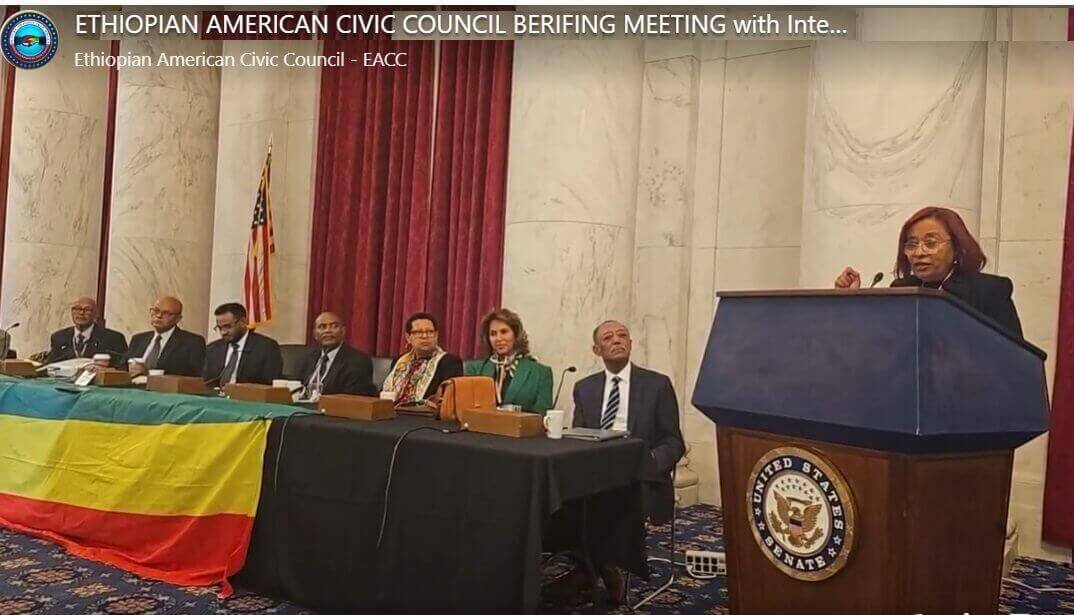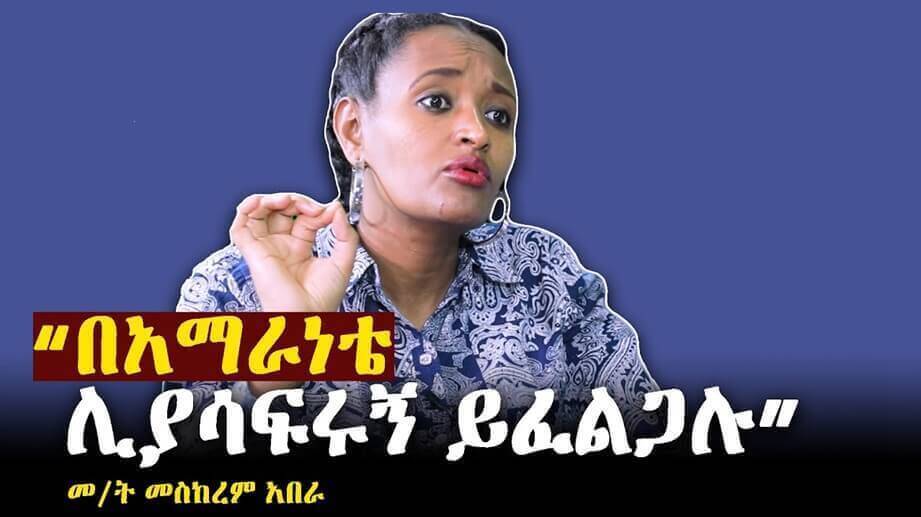by Mesfin Mekonen
November 10, 2023

Unfortunately, Ethiopia is experiencing a series of overlapping crises: human rights violations; civil war; acts of genocide in the Amhara region and in Southern Ethiopia; forced dislocations and manmade hunger.
At this conference, we will present updates about the current political situation. We will discuss Ethiopia’s Constitution and federal government structure, which are the underlying cause of the conflicts that are tearing Ethiopia apart. We will draft resolutions that propose solutions to Ethiopia’s most pressing problems, to bring peace, stability, and prosperity to the second-largest country in Africa.
We believe the Ethiopian government must provide security, respect human rights, promote unity, and ensure genuine democracy for all citizens. It has failed on all of these measures.
While ultimately the fate of Ethiopia is in the hands of Ethiopians, we also believe that the United States can and must play a major role in promoting human rights, a transition to democracy, and economic development. America cannot look away, and it cannot be so absorbed in other crises that it ignores Ethiopia’s plight. America’s reputation as a beacon of hope, and the stability of the Horn of Africa are at stake.
- Ambassador Hilda Suka-Mafudze, the African Union Ambassador to the U.S., addressed the meeting. She discussed the pursuit of peace and the need for reconciliation. Ambassador Suka-Mafudze discussed the progress the African Union achieved in stopping hostilities between the government of Ethiopia and the TPLF. She said the African Union is working to enhance and promote improved relations among African countries. The ambassador noted that the African Union is headquartered in Ethiopia and said that the entire continent looks on Ethiopia as an example of stability. Ethiopia, “is the capital of the continent of Africa.”
- Dr. Aklog Birara, vice chairman of Global Alliance for the Rights if Ethiopians discussed “Ethiopia’s Quest for Peace, Stability, Human and National Security—why ethnic federalism is a barrier?” Dr. Birara, a former World Bank official, said that the U.S. and the world community have provided tens of billions of dollars in assistance to Ethiopia over the last three decades, enough to “have lifted Ethiopia out of endemic poverty and created favorable conditions for a resilient economy” if it had been invested properly. Ethiopians have not benefited from the assistance because the government of Ethiopia has squandered and pilfered the aid.
Dr. Birara described a number of threats facing Ethiopia, and said that “the most imminent threat in Ethiopia is ethnic genocide of Amhara.”
Dr. Birara’s full remarks are available at:https://zehabesha.com/ethiopian-diaspora-constitutional-conference-u-s-senate-russel-building-kennedy-caucus-room/
- Ato Mekonnen Doyamo made a detailed presentation on the need for a new constitution, and on a draft constitution that he and his organization have crafted. He described the flaws in Ethiopia’s current constitution, and stressed that it was imposed on the Ethiopian people without their consent. A link to the presentation is available at link video below end of the Washington update.
- Dr. Badege Bishaw provided a briefing on “Ethiopia’s Multifaceted Problems: Civil War, Drought, Famine and Food Insecurity.” At the conclusion of his remarks, he made the following plea to political leaders in the U.S. and the international community:
- The civil war in the Amhara region should be stopped immediately, and the Ethiopia Defense Force should leave the region.
- Free all political prisoners and journalists without any preconditions.
- USAID, WFP and other humanitarian organizations should deliver Emergency Food Aid to people who are in dire need in the Amhara, Tigray, Afar and Somalia Regions.
- Transparent and accountable system should be in place by the USAID, WFP and others to avoid corruption of Food Aid.
- Unfettered access to food delivery to people in the Amhara region before the worst humanitarian crisis.
- Mesfin Mekonen made a presentation about “Peace, stability and mitigating conflict in Ethiopia.” He accused the current government and its predecessor of promulgating an ideology based on ethnic division that has no basis in Ethiopia’s history, said the path to peace and stability runs through constitutional reform, and called for a truth and reconciliation process. “A democratically elected government, rule of law and respect for human rights are essential conditions for stability. These elements are also necessary to create the economic prosperity that Ethiopians need to live dignified lives.”
- Wzro Tsigereda Mulugeta, Diplomatic Committee Chair, Global Amhara Coalition, presented a resolution outlining a path to creating a stable pluralistic democratic system of governance and a strong j
- udiciary and civil society in Ethiopia. The resolution calls for the world community to pressure the Ethiopian government to immediately halt the genocide and ethnic cleansing that targets Amharas and other ethnic groups. It calls for steps to end hunger, violence and human rights violations, and for the creation and adoption of a new constitution. Please watch the video below link:
- There was a lively question and answer period at the conclusion of the prepared remarks. Andrew Craig said that Senate Minority Leader Mitch McConnell’s office was down the hall from the meeting. He asked what the panelists would tell McConnell if he asked what the U.S. Senate could to improve the situation in Ethiopia. Decon Yosef, chairman EACC one of the speakers, responded that he would ask McConnell to help end the civil war in Ethiopia, to use America’s influence and power to help bring prosperity to the Ethiopian people and to promote human rights. And he said that he would make the same request to Majority Leader Schumer. In response to another question from the audience, Decon Yosef said that the U.S. should apply the Magnitsky Act of 2016, which authorizes the U.S. government to sanction foreign government officials who violate human rights, to officials in Ethiopia who have violated the human rights of their own people.
- A copy of the resolution is attached this issue of Washington Update.
- To hear all of the presentations, please see the link below video of the entire event is available at: https://fb.watch/obLGQxYPwO/?
mibextid=ZbWKwL
















